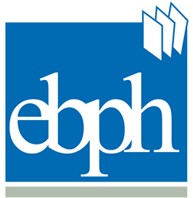Italian women and HPV prevention. Knowledge, fears, uncertainty on Human Papillomavirus and the relative vaccination: dual research approach
DOI:
https://doi.org/10.2427/5629Keywords:
Health information, Sexual behavior, HPV prevention, Free vaccine campaignAbstract
Background: The main purpose of this study was to identify and describe knowledge, beliefs and atti-
tudes towards Human Papillomavirus (HPV) infection and HPV vaccination among Italian women aged
between 18 and 55.
MeTHods: 6 Focus groups, in each of which 8 women took part, held in 6 different locations and a survey
on a representative sample of 3 500 Italian women aged between 18 and 55, with oversizing for three
regions (Lombardy, Latium, sicily). The survey was conducted by telephone using the caTI (computer
assisted Telephone Interview) technique, in september 2011, adopting a structured questionnaire. data
were codified and statistical analysis was computed using sPss software.
resuLTs: Italian women have only a partial, even superficial, knowledge of pathologies associated with
HPV, and also their information on the purpose of prevention activity, in which they choose to partici-
pate, is more generic than one might expect. The weakness of the information framework is partly due
to the fact that the main source of information is the mass media, mainly the press and television, and
to a lesser extent the Internet, and that information is random and fragmented.
Information about HPV and the possibility of vaccination often overlap, and it is the specific occasion of
contact with the asL (local health authority) vaccine services, providing information to youngsters that
are the target of the free campaign, that is central in gaining access to information about the virus and
vaccination, especially for the mothers of adolescent daughters. The vaccine campaign not only plays a
key role in providing information about HPV and about the vaccination, but also ends up by influencing
the notions and beliefs that Italian women hold about this vaccination.
concLusIons: only a small portion of the female population, directly involved in the free vaccination
scheme for adolescents, has actually been given information, often partial, on this subject. a crucial issue
for future health promotion campaign in this sector is information, since women exposed to the highest level
of qualified and targeted information, mothers of vaccinated girls, believe that the information available is
generally inadequate.





